I ran across a marriage that took place on this day in 1904. The story looked like it had potential. It involves a Bachmann marrying a Lorenz. Those are some familiar names. Looking deeper, I found out the the Bachmann had been married previously to a Stueve. That added some interest. I came across one wedding photograph. That was helpful. However, what really interested me was the fact that this Bachmann started out his career as a wagon maker, but ended up being a mechanic in a machine shop. It is the story of a man who adapted to some important new technology that was going to make a big impact in farming communities everywhere.
The story starts with Theodore Bachmann being born on October 31, 1862 in Farrar, Missouri. I find it appropriate that a man who was going to participate in a reformation in agriculture was also going to be born on Reformation Day. Theodore’s parents were Heinrich and Ernstine (Koenig) Bachmann. His baptism is recorded in the church books of Salem Lutheran Church in Farrar. Here is an image of that record.
 Theodore Bachman baptism record – Salem, Farrar
Theodore Bachman baptism record – Salem, Farrar
When Theodore was 23 years old, he married Christiana Stueve. That marriage took place on October 28, 1886, three days before his 24th birthday. That wedding took place at Concordia Lutheran Church in Frohna, Missouri. Here is an image of that marriage record as you find it in Concordia’s church books.
 Bachmann/Stueve marriage record – Concordia, Frohna
Bachmann/Stueve marriage record – Concordia, Frohna
Here is their wedding photograph.

There was only one census in which we see this couple. That was in 1900.
 1900 census – Frohna, MO
1900 census – Frohna, MO
It shows Theodore as a wagon maker. It also shows that after about 14 years of marriage, this couple still had no children. Christiana died two years later in 1902. She was buried in the Concordia Lutheran Cemetery in Frohna. Here is her gravestone.
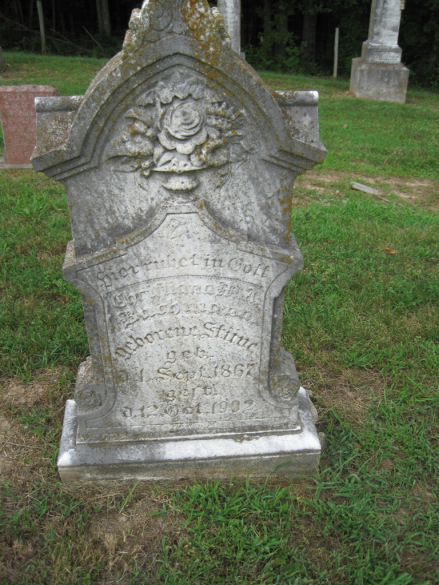 Christiana Stueve Bachmann gravestone – Concordia, Frohna
Christiana Stueve Bachmann gravestone – Concordia, Frohna
Theodore would marry again in 1904. He married Mathilde Lorenz on January 3rd at Salem Lutheran Church in Farrar. In the 1910 census, we find this couple still living in Frohna, but Theodore’s occupation is now shown as being a machinist.
 1910 census – Frohna, MO
1910 census – Frohna, MO
It is reported that Theodore Bachmann had his own machine shop located in Frohna. In the above census, you can see that Charles Kassel was living with the Bachmanns. Charles and his brother, Theodore Kassel, would purchase the machine shop in 1911. It would go on to become known as the Frohna Machine Shop. Already while Theodore Bachmann owned it, he was not only a mechanic, but his business was also selling farm machinery. They would begin selling items which were available from International Harvester Company. Here is a photo of the Frohna Machine Shop.
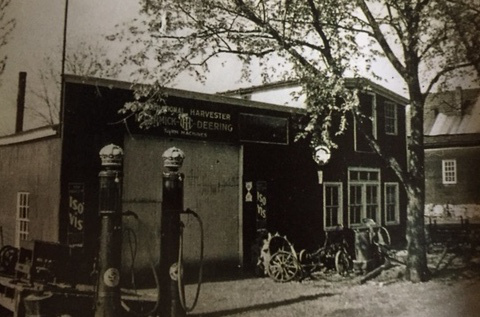 Frohna Machine Shop
Frohna Machine Shop
I did a little research on International Harvester and found out a few things about what was happening in that company around 1910. The early tractors made by this company were called Moguls. Here is a photograph of one of these machines.
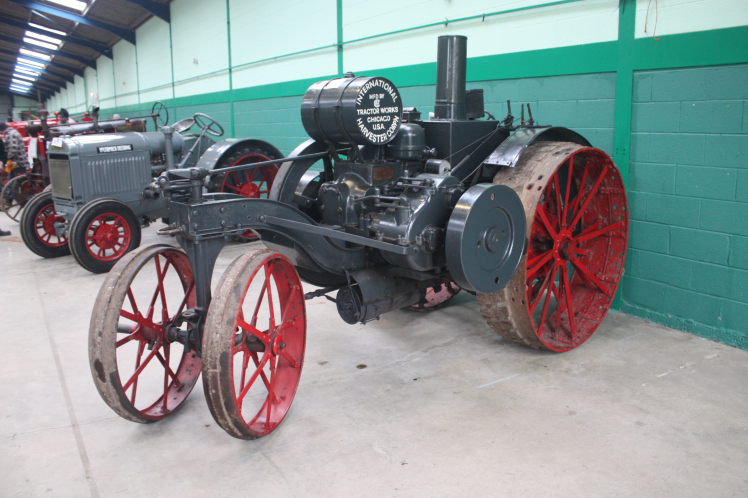
I found this video which shows what it took to start one of these tractors. I think you will find it as fascinating as I did.
I have reason to believe that Theodore may have worked on machines such as this. If he did, it must have been a challenging transition that he made from being a wagon maker to a machinist.
Later on, International Harvester would come along with a brand name tractor called Farmall. This photo shows one of the earlier Farmall tractors being used in Perry County. It is being used by Erhard Gerler in about 1930.
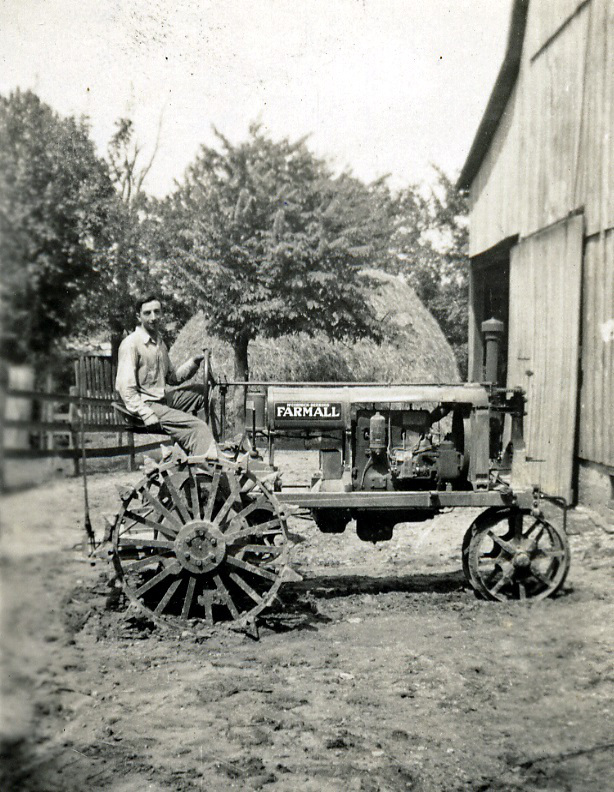
Recently, my cousin’s husband came to get his old Farmall tractor which he was storing in my barn. Here we see him pulling it out so his grandson can learn how to work on it.

Theodore and Mathilde would also have no children. So this branch of the Bachmann family would come to an end. Theodore died in 1921 at the age of 58. Mathilde died in 1946. They are both buried in the Immanuel Lutheran Cemetery in Perryville. Here are their gravestones.
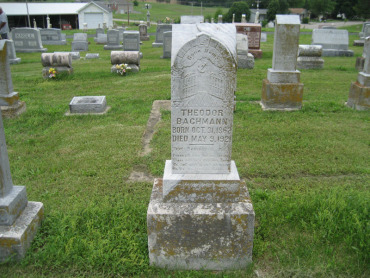
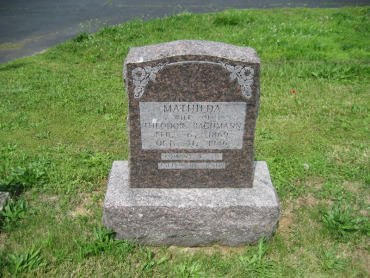
When new technology enter the scene, people often have one of two responses. They either resist the change and continue to do things the old way, or they embrace the change and adapt to it. It appears that Theodore had the attitude of the latter of these two.
Share this:





